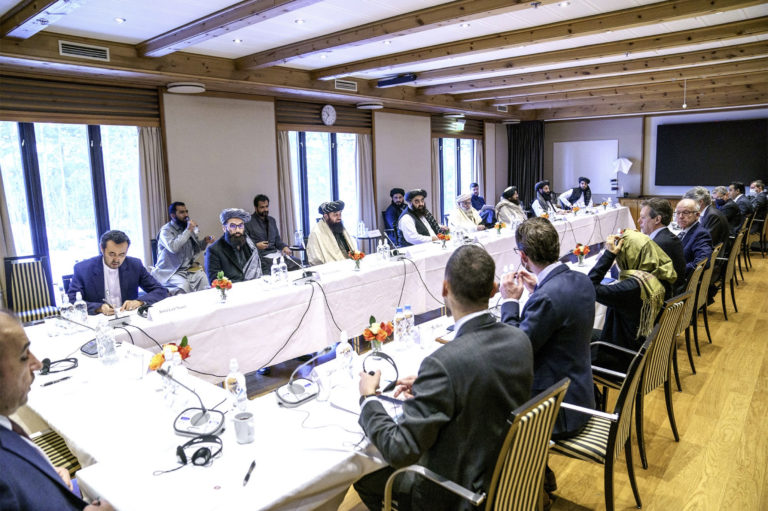On Jan. 24, the Taliban began its first official meetings with western diplomats since taking control of Afghanistan in August.
The meetings took place over three days behind closed doors at a hotel near Oslo, Norway. In the sessions, Taliban representatives pushed for the release of $10 billion in assets frozen by the United States and other western countries.
“We are requesting them to unfreeze Afghan assets and not punish ordinary Afghans because of the political discourse,” Taliban delegate Shaffiullah Azam said during the Jan. 24 session. “Because of the starvation, because of the deadly winter, I think it’s time for the international community to support Afghans, not punish them because of their political disputes.”
“Participants of the meeting recognized that understanding and joint cooperation are the only solutions to all the problems of Afghanistan,” Afghan deputy culture and information minister Zabihullah Mujahid tweeted after the first meeting. “All Afghans need to work together for better political, economic and security outcomes in the country.”
Since the Taliban’s occupation, the United Nations have allowed their administration to pay for necessary imports like electricity. Still, around 40% of Afghanistan’s population suffers from poverty – close to a 30% increase since the takeover.
According to a statement released by the State Department, the U.S. delegation plans to discuss “the formation of a representative political system; responses to the urgent humanitarian and economic crises; security and counterterrorism concerns; and human rights, especially education for girls and women.”
Before the meetings, representatives from Norway, the United States, the United Kingdom, and the European Union met with Afghan women’s rights activists and human rights defenders to assess the situation and respond to expected demands.
As a result, the priorities of western delegates focused on the well-being of Afghan women, who have been targeted by widespread regulations since the Taliban’s takeover. These include having employment options restricted to health and education, restrictions of education beyond sixth grade, and universal enforcement of hijab headscarves.
The Taliban have also targeted activists, journalists, and television crews covering protests, detaining them and, on some occasions, beating them.




